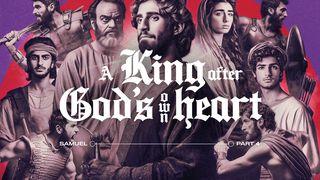Unity: A Study in 1 CorinthiansSample

What does it say?
Paul addressed the issue of whether it was okay for believers to eat meat that had been sacrificed to idols.
What does it mean?
Paul deals with the subject of Christian liberty in the next three chapters. He understood that there is only one true God. Therefore, idols amount to nothing, as do the sacrifices made to idols. However, people were being converted from pagan idol worship every day. To them, eating meat that had been sacrificed to an idol went against their conscience; they weren’t yet strong in this area of their faith. Paul would rather never eat meat again than offend a weaker Christian. Mature believers are willing to give up personal rights in order to keep others from stumbling in their faith. Paul warned that personal freedom doesn’t override Christian responsibility.
How should I respond?
No man is an island. Your life influences others, whether you mean for it to or not. The people in your house, church, and community are at various points of spiritual maturity. What may seem harmless to you could cause sinful thoughts, actions, or addiction in a weaker believer. Paul’s example in this area is difficult to follow because everything in our society tells us to put ourselves first. What practices should you give up because they could hinder another follower of Christ? Instead of asking, “What am I allowed to do?”— ask, “How can I help others grow stronger in their faith?”
Scripture
About this Plan

The church at Corinth was plagued by internal division and sinful derision. Paul provides the only solution potent enough for their disunity and spiritual disruptions: “Jesus Christ and Him crucified” (1 Corinthians 1:10). 1 Corinthians reminds us that by focusing on Jesus and His glorious resurrection, we too will “be steadfast, immovable, always abounding in the word of the Lord” (1 Corinthians 15:58).
More
We would like to thank Thomas Road Baptist Church for providing this plan. For more information, please visit: http://www.trbc.org
Related Plans

Hope and Healing for Single Moms

The Rescue Plan

Lies of the Heart

Why? | a 3-Day Skate Church Movement Devotional

Following Jesus at Christmas

2 Samuel 1-11:1: A King After God's Own Heart

GOD, ME & MY TEENS!

Surrounded: Living With Confidence in God’s Protection

Don’t Let Anything Hold You Back – Live Your Purpose!
